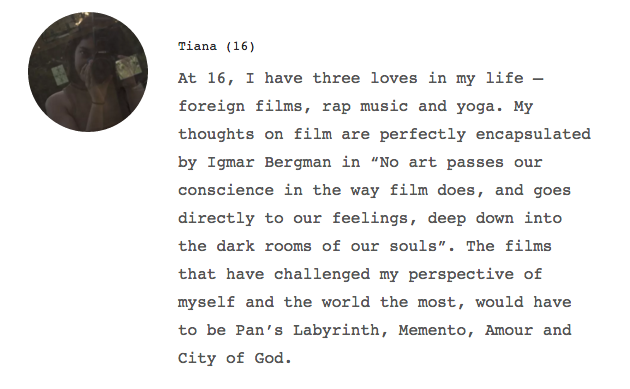Swagger. “To walk or behave in a very confident and arrogant or self-important way”. Known for his music videos, director Olivier Babinet has made a visually stylistic, brimming with attitude documentary. A statement about the dreams and hopes of adolescents in one of France’s roughest neighbourhoods, Swagger celebrates individuality and beauty in the harsh urban landscape. Aulnay-sous-Bois , described by one as “Paris’s Afghanistan” finally receives a stage and it is hard to not ignore its light.
The opening sequence involves a drone panning across the night lit neighbourhood underscored by a magical electronic soundtrack and the adolescent’s narration over the top – “It may have first been a forest… I dunno and then they built a city.” With visuals that remind you of a stunning R&B music video, it is hard not to become enchanted with the neighbourhood. However, soon after, the child states “It’s not like what it used to be before. People of French stock used to live here. But then, when the blacks and Arabs came, they didn’t want to stay and moved to other cities.”
Babinet carefully celebrates the beauty of the neighbourhood while retaining integrity to the issues it faces. A community that is marginalised not just socio-economically but also in public discourse, Swagger provides an original perspective that is free from the stereotypes and prejudices that audiences are inclined towards. As Reggis, one of the adolescents in the documentary said, “Even ugly things are beautiful.”
The documentary is unusual in its execution, combining gorgeous cinematography that would be featured in any national geographic documentary with choreographed scenes that seem to have come from MTV. Perhaps the definition of extra, but here it work well, really well. From a choreographed dance sequence in a wood work shop, featuring individuals in blue dancing somewhat mechanically to the music as one describes life in African from his home country, to the scene where Paul walks across the neighbourhood as if he is the star of a music video. There is a theatricality to the images, with the warm soft lighting coming from overhead, making the film look as if it is set on a stage rather in real life. Yet this does not degrade the power of the documentary, in illustrating the lives of the youth.
Reggis. A shameless, flamboyant, lovable and hilarious fashionista who wants to become stylist. Naila, an intelligent, imaginative and empathetic child who wants to become an architect. Mariyama Paul, Aaron, Nazario, all of them. It is hard not to feel them, not to feel the connection with them as they speak.
When filming the youth speaking and talking about their lives, the other youth at times remain in the room, hearing what their neighbours and friends have to say. The camera then shows their reaction as they listen the stories from the other participants. Babinet thus creates this sense of community identity that builds through the narrative but also demonstrates the diversity of the experiences and identities – even the youth are surprised as they learn about each other.
Original. Fresh. Funny. Sad. Beautiful. Swagger. I loved it.
Swagger screened at the Melbourne International Film Festival.

